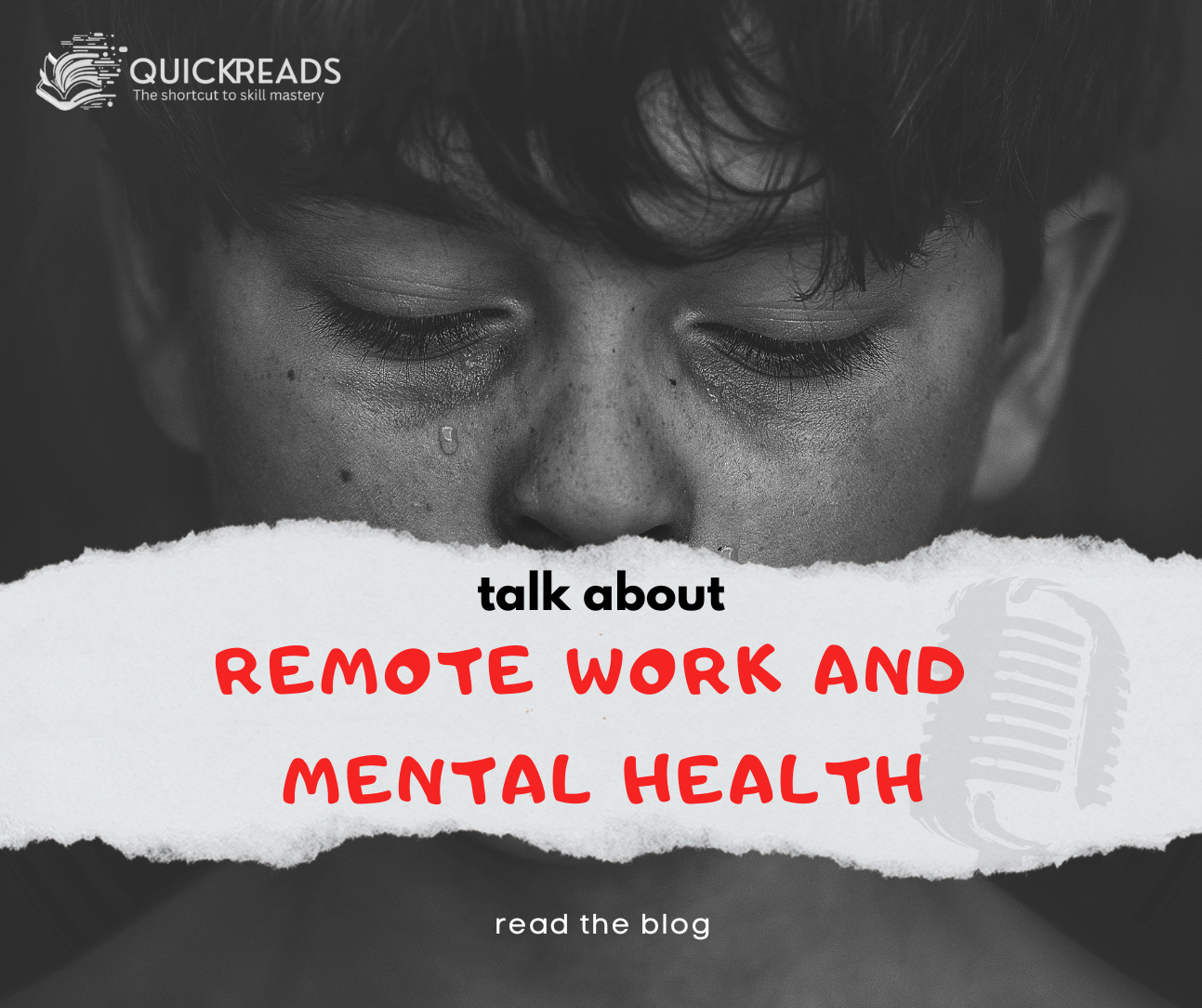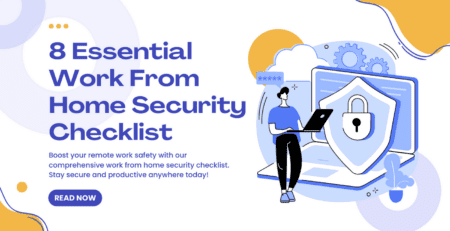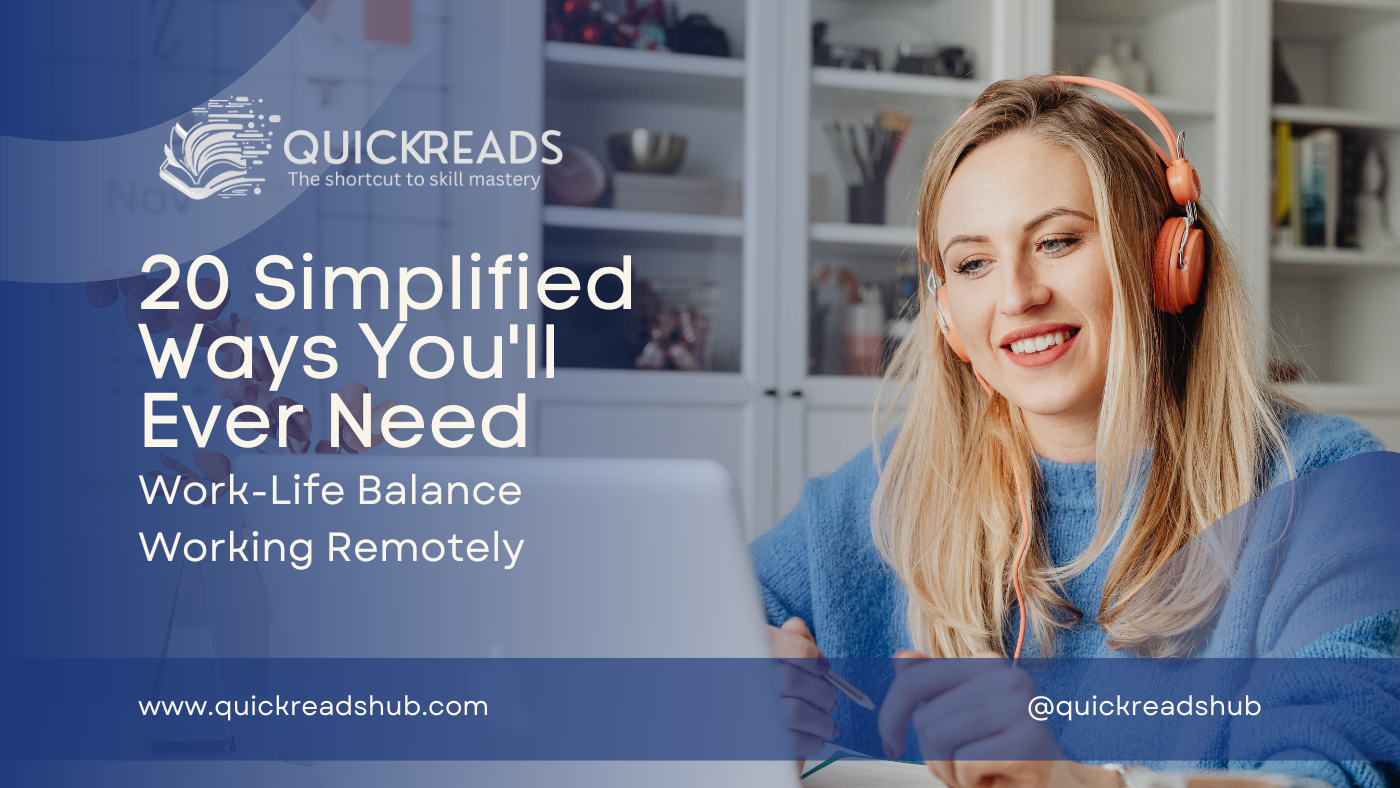It’s 7:30 AM on a Monday. You’re sitting at your kitchen table, a steaming cup of coffee in hand. The sun is just beginning to peek through the blinds, casting a warm, golden glow on your makeshift workspace. You’re about to start your workday, but instead of rushing to beat the morning traffic, you’re at home, comfortably nestled in your favorite chair. This is the reality of remote work, a concept that has become increasingly prevalent in our lives.
Now, let’s add another layer to this scenario. You’re still sitting at your kitchen table, but the novelty of working from home has worn off. The boundaries between your personal and professional life have blurred, and you’re feeling the strain. You’re constantly on call, and the workday never seems to end. This is the other side of remote work, the side that can impact your mental health.
Remote work offers flexibility and eliminates the daily commute, but it also presents unique challenges. It can lead to feelings of isolation, disrupt work-life balance, and increase stress levels. This blog post aims to explore these challenges and provide practical strategies to maintain mental health while working remotely.
In the following sections, we’ll delve into the impact of remote work on mental health, discuss the importance of self-care and setting boundaries, and provide tips on enhancing productivity without compromising mental health. So, whether you’re a seasoned remote worker or just starting on this journey, this post is for you. Let’s navigate the world of remote work and mental health together.
Stay tuned as we explore this topic in depth in the following chapters. Remember, your mental health matters, even when your office is just a few steps away from your bedroom.
Understanding the Impact of Remote Work on Mental Health
Picture this: You’re sitting at your home office desk, coffee in hand, ready to start your workday. The sun is shining through the window, your favorite playlist is on, and there’s no boss looking over your shoulder. Sounds like a dream, right? But as the day progresses, you start to feel a sense of isolation creeping in. The walls of your home office start to feel a bit too close, and you realize you haven’t spoken to another human being all day.
This is the reality for many remote workers. While the flexibility and lack of commute are definite perks, the impact of remote work on mental health can be a hidden challenge.
The Unseen Challenges of Remote Work
Working remotely can introduce a unique set of mental health challenges. The isolation can lead to feelings of loneliness and anxiety. The blurred lines between work and personal life can lead to burnout. And the lack of physical activity can contribute to a decline in overall mental well-being.
A survey of remote workers revealed that many struggle with these issues. The lack of face-to-face interaction with colleagues, the absence of a structured work environment, and the difficulty in separating work from personal life were all cited as factors that negatively impacted their mental health.
The Importance of Self-Care and Boundaries
In the face of these challenges, self-care and setting boundaries become crucial. Self-care in the context of remote work might mean taking regular breaks, getting physical exercise, or ensuring you have social interactions each day.
Setting boundaries can mean having a dedicated workspace in your home, setting specific work hours, and making sure to disconnect from work outside of those hours. It’s about creating a balance and ensuring that work doesn’t infiltrate every aspect of your life.
The Science Behind It All
Studies show that these strategies are not just feel-good measures. They have a proven impact on mental health. For instance, a study found that remote workers who took regular breaks reported lower levels of stress and higher job satisfaction.
Taking regular breaks allows your brain to refocus and relax. In the Airtasker survey, 37% of the remote workers say taking regular breaks is the best way to stay productive. Use your break to get a snack, drink water, get fresh air, or check on your family. The average break time for a remote worker is 22 minutes spread out across the day.
Similarly, setting boundaries can help reduce feelings of job burnout. A study found that employees who were able to disconnect from work during their personal time experienced lower levels of stress and were more satisfied with their jobs.
In the uncharted territory of remote work, understanding the impact on mental health and taking steps to address it is not just beneficial—it’s essential. So, as we navigate this new landscape, let’s remember to take care of our mental health. After all, our minds are our most important tool, and keeping them sharp and healthy is the key to not just surviving, but thriving in the world of remote work.
Stay tuned as we delve deeper into the strategies for maintaining mental health in remote work in the next section.
III. Strategies for Maintaining Mental Health in Remote Work
One of the most effective strategies for maintaining mental health while working remotely is establishing a routine. It’s like setting the rhythm of your day, and your mind loves it! A structured day gives you a sense of control and predictability, which can significantly reduce anxiety and stress.
But here’s the catch: your routine should not just be about work. It should also include self-care activities, exercise, breaks, and leisure time. Remember, all work and no play makes Jack a dull boy, and we don’t want that, do we?
Your Workspace, Your Sanctuary
Another crucial strategy is creating a dedicated workspace. Now, I know what you’re thinking. “I’m working from home, isn’t my entire house my workspace?” Well, not quite.
Having a specific area for work helps create a mental boundary between your work and personal life. This separation is essential for your work-from-home mental health. It allows you to ‘leave’ work at the end of the day, even if you’re just stepping away from your desk.
The Power of Breaks
Taking regular breaks is not just about resting your eyes or stretching your legs. It’s about giving your mind a breather. Studies have shown that taking short breaks can enhance creativity and productivity. So, don’t feel guilty about that coffee break or that quick chat with a friend. Consider it part of your job!
The Balancing Act: Stress Management and Work-Life Balance
All these strategies contribute to stress management and work-life balance, two critical aspects of remote work and mental health. A well-structured routine, a dedicated workspace, and regular breaks can help you manage your workload without feeling overwhelmed. They can also help you create a clear distinction between your work and personal life, preventing burnout and promoting mental well-being.
Remember, maintaining mental health while working remotely is not a luxury; it’s a necessity. So, take these strategies to heart and make them part of your remote work lifestyle. Your mind will thank you for it!
In the next section, we’ll delve deeper into the role of self-care in remote work. So, stay tuned!
IV. The Role of Self-Care in Remote Work
The concept of remote work has revolutionized the traditional workplace, offering flexibility and eliminating the daily commute. However, it’s not without its challenges. The intersection of remote work and mental health is a topic of growing interest, as the shift to working from home has brought unique mental health challenges to the forefront.
Self-care plays a crucial role in maintaining mental health while working remotely. It involves taking steps to ensure your physical, emotional, and mental well-being. In the context of remote work, self-care can mean setting boundaries between work and personal life, taking regular breaks, and ensuring you stay connected with others.
Understanding Self-Care in the Context of Remote Work
Self-care is not just about spa days and bubble baths; it’s about taking care of your mental, emotional, and physical health. In the context of remote work, self-care can take on many forms. It’s about creating a healthy work environment, setting boundaries, managing your time effectively, and staying connected with your colleagues and loved ones.
Studies show that remote work can lead to feelings of isolation and increased stress levels. This is where self-care strategies come into play. They can help mitigate the negative effects of remote work on mental health and improve overall well-being.
Practical Self-Care Tips for Remote Workers
- Create a Dedicated Workspace: Having a separate space for work helps create a mental boundary between your professional and personal life. This can reduce stress and help you focus better.
- Take Regular Breaks: It’s easy to get caught up in work and forget to take breaks when working from home. However, taking short breaks throughout the day can help reduce stress and improve productivity.
- Stay Connected: Remote work can sometimes feel isolating. Make an effort to stay connected with your colleagues and loved ones. Regular check-ins and virtual meetups can help alleviate feelings of isolation.
- Exercise Regularly: Physical activity is known to reduce stress and improve mental health. Try to incorporate some form of exercise into your daily routine.
- Practice Mindfulness: Mindfulness practices like meditation and deep breathing can help manage stress and anxiety. They can be particularly helpful in maintaining mental health while working from home.
- Prioritize Sleep: Good sleep is essential for mental health. Try to maintain a regular sleep schedule and create a relaxing bedtime routine.
- Seek Professional Help if Needed: If you’re feeling overwhelmed, it’s important to seek help from mental health professionals. They can provide you with the tools and strategies to manage your mental health effectively.
The shift to remote work has brought the topic of work-from-home mental health to the forefront. While it offers many benefits, it’s important to be aware of the potential mental health challenges and take steps to address them. Self-care is a crucial component of maintaining mental health while working remotely. By incorporating these self-care tips into your routine, you can create
V. Setting Boundaries in Remote Work
When we talk about remote work and mental health, one crucial aspect that often comes up is setting boundaries. Boundaries are like invisible lines that help us separate our work life from our personal life. In the context of remote work, setting boundaries can be a bit challenging but it’s not impossible.
Why are Boundaries Important in Remote Work?
Boundaries are important for maintaining a healthy work-life balance. When you work from home, it’s easy to blur the lines between your professional and personal life. You might find yourself answering work emails late at night or skipping breaks to meet deadlines. This can lead to stress and burnout, which can negatively impact your mental health.
Tips for Setting Boundaries in Remote Work
- Have a Dedicated Workspace: Having a separate space for work can help you mentally separate your work from your personal life. It doesn’t have to be a separate room – it can be a corner of your living room or even your kitchen table. The key is to have a space that you associate with work.
- Set a Schedule and Stick to It: Just like in an office, it’s important to have a start and end time for your workday. This helps you avoid overworking and ensures you have time for relaxation and self-care.
- Take Regular Breaks: Taking short breaks throughout the day can help you relax and recharge. It’s easy to forget to take breaks when you’re working from home, but they’re essential for maintaining your mental health.
- Communicate Your Boundaries: Let your colleagues and superiors know about your work schedule and availability. This can help prevent work-related communications during your off-hours.
Setting boundaries is not about limiting your productivity. It’s about ensuring that you can work effectively without compromising your mental health. So, as you navigate the world of remote work, remember to set and respect your boundaries. It’s not just good for your work, it’s good for your mental health too.
Remember, remote work and mental health are closely linked. By setting boundaries, you’re taking a proactive step towards maintaining your mental health while working from home.
VI. Enhancing Productivity While Maintaining Mental Health
In the realm of remote work, the phrase “Remote work and mental health” is often thrown around. It’s a topic that has gained significant attention, especially in the wake of the global shift towards remote work due to the pandemic. But what does it truly mean? And how does it impact our productivity?
Let me share a personal story. A few years ago, I was working in a traditional office setting. The daily commute, rigid schedules, and lack of flexibility were draining. I felt like I was constantly running on a hamster wheel, trying to balance work, family, and personal time. When I transitioned to remote work, I was initially thrilled with the freedom it offered. However, I soon realized that this new work style came with its own set of challenges. I found myself working longer hours, struggling to separate work from my personal life, and dealing with feelings of isolation.
This experience made me realize the importance of maintaining mental health in enhancing productivity. It’s not just about working more hours or completing more tasks. It’s about working smarter, not harder. And a significant part of that involves taking care of our mental health.
The Connection Between Mental Health and Productivity
When we talk about productivity, we often focus on tangible factors like time management, organization, and efficiency. However, our mental health plays a massive role in our ability to be productive. Anxiety, stress, and feelings of isolation, common issues in remote work, can significantly hinder our productivity. On the other hand, when we are mentally healthy, we are more focused, creative, and efficient.
A survey conducted by Microsoft’s 2022 New Future of Work Report found that remote work can lead to feelings of social isolation and guilt. However, it also highlighted that workers with existing caring responsibilities or disabilities experienced positive changes in their mental health due to remote work. This shows that different demographics will experience remote work in different ways, and companies need to balance flexibility, productivity, and the social needs of employees when implementing remote work policies.
Tips for Staying Productive Without Compromising Mental Health
So, how can we stay productive without compromising our mental health? Here are some strategies I’ve found helpful:
- Establish Clear Boundaries: One of the biggest challenges with remote work is the blurring of boundaries between work and personal life. It’s crucial to establish clear boundaries to prevent work from spilling over into your personal time. This could mean setting specific work hours, having a dedicated workspace, or even dressing up for work.
- Take Regular Breaks: It’s easy to get caught up in work and forget to take breaks. However, regular breaks are essential for maintaining our mental health and productivity. Whether it’s a quick walk, a meditation session, or just a few minutes away from the screen, make sure to take regular breaks throughout the day.
- Stay Connected: Working remotely can sometimes feel isolating. Make an effort to stay connected with your colleagues and friends. Regular check-ins, virtual coffee breaks, or even just a quick chat can go a long way in combating feelings of isolation.
- Prioritize Self-Care: Self-care is not a luxury; it’s a necessity. Make sure to prioritize activities that help you relax and recharge. This could be anything from reading a book, exercising, or pursuing a hobby.
- Seek Support When Needed: If you’re feeling overwhelmed, don’t hesitate to seek support. Whether it’s from a mental health professional, a trusted friend, or a family member, remember that it’s okay to ask for help.
Always remember, productivity is not just about doing more; it’s about maintaining a balance that allows you to work effectively while also taking care of your mental health. As we navigate the world of remote work, it’s crucial to remember that our mental health is just as important as our physical health. After all, a healthy mind is the key to a productive workday.
In the next section, we’ll delve into some practical stress management techniques that remote workers can use to maintain their mental health and enhance their productivity. So, stay tuned and keep reading!
VII. Stress Management Techniques for Remote Workers
Stress management is a crucial aspect of remote work. The unique challenges of working from home, such as isolation, distractions, and the blurring of work-life boundaries, can lead to increased stress levels. Therefore, it’s essential to have practical stress management techniques in place to maintain productivity and overall well-being.
Let me share a story. I remember when I first started working remotely. The freedom was exhilarating, but it came with its own set of challenges. I found myself working longer hours, unable to separate my personal life from work. The stress started to build up, affecting my productivity and mental health. It was then that I realized the importance of stress management in remote work. I started implementing various techniques, and it made a significant difference.
Here are some of the strategies that helped me and might help you too:
1. Establish a Routine
Having a structured day can provide a sense of normalcy and control. Define your work hours and stick to them. This can help create a clear distinction between work and personal time, preventing work from consuming your entire day.
2. Create a Dedicated Workspace
Having a specific area for work can help you focus and reduce distractions. This physical separation between your workspace and personal life can enhance productivity and maintain a healthy work-life balance.
3. Take Regular Breaks
Stepping away from your desk for even five minutes can help you relax and stay focused. Regular breaks not only maintain focus but also improve creativity and overall work quality.
4. Exercise Regularly
Physical activity plays a vital role in reducing stress and boosting energy levels. Whether it’s a brisk walk, a home workout, or a yoga session, dedicating time to move your body provides a refreshing break from work and stimulates mental clarity.
5. Stay Connected
Working remotely can sometimes feel isolating. Prioritize staying connected with colleagues and friends to combat this sense of isolation. Schedule virtual coffee breaks or informal video calls to maintain social connections.
6. Practice Mindfulness
Mindfulness exercises, such as meditation or deep breathing, can help reduce stress and improve focus. Even a few minutes of mindfulness each day can make a significant difference.
7. Seek Support
Don’t hesitate to reach out to colleagues, friends, or professional networks for support. Sharing experiences and concerns can provide valuable insights and emotional support.
Remember, stress management is not a one-size-fits-all solution. What works for one person may not work for another. It’s about finding what works best for you and incorporating it into your daily routine.
VIII. Conclusion
As we reach the end of our exploration into the world of remote work and mental health, it’s time to take a moment to reflect on the journey we’ve taken together. We’ve navigated the challenges of remote work, understood its impact on mental health, and discovered strategies to maintain mental health while working from home. We’ve learned about the importance of self-care and setting boundaries, and how these contribute to enhancing productivity and managing stress.
Throughout our journey, we’ve realized that remote work isn’t just about working from your couch in your pajamas (although that can be a perk!). It’s about understanding how this new way of working affects our mental health and finding ways to ensure we’re taking care of ourselves while delivering our best work.
We’ve learned that maintaining mental health in remote work is not a luxury, but a necessity. It’s not something we can push to the side and deal with later. It’s something we need to prioritize, just like our work tasks. Because at the end of the day, our mental health plays a significant role in our overall productivity and satisfaction with our work.
So, as we wrap up, remember this: remote work is a journey, and like any journey, it comes with its ups and downs. But with the right strategies in place, we can navigate these challenges and make the most of the opportunities remote work provides.
Remember, you’re not alone in this journey. We’re all figuring it out together. So, let’s continue to share our experiences, learn from each other, and support each other in prioritizing our mental health in remote work. Because when we take care of our mental health, we’re not just taking care of ourselves, we’re also contributing to a healthier, more productive remote work culture.
So, here’s to our mental health and to the exciting journey of remote work that lies ahead!
IX. Next Steps
We’ve taken a deep dive into the world of remote work and mental health, but our exploration doesn’t have to end here. In fact, it’s just the beginning. The beauty of this journey is that it’s not a solo expedition, but a shared experience. We learn, grow, and navigate the challenges of remote work together.
So, we’d love to hear from you. What are your experiences or challenges in maintaining mental health while working remotely? What strategies have worked for you? Your insights could be the lifeline someone else needs to navigate their own remote work journey.
Share your thoughts, experiences, and tips in the comments below. Let’s create a community where we can support each other in prioritizing our mental health in remote work.
Further Reading:
And if you’re hungry for more insights and strategies on remote work and mental health, we’ve got you covered. Check out our other articles on Work-Life Balance in Remote Work and The Art of Mindfulness in Remote Work. These resources are packed with practical tips and strategies to help you thrive in your remote work journey.
Remember, prioritizing your mental health in remote work is not a one-time event, but a continuous journey. And we’re here to journey with you every step of the way.





